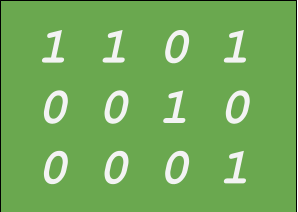Let’s Get Digital!#
We are in the midst of the digital revolution, an upheaval of society with the same power and scale as the agricultural and industrial revolutions of the past. Since the invention of the transistor in 1947, digital technologies (both the physical electronics and the processing techniques) have disrupted and altered almost every facet of society, from communication to economics to art…everything!
As an example, consider the music industry, which has been at the forefront of many of the changes brought about by the digital revolution. Around 1980, the industry embraced digital technology with the release of the Compact Disc (CD), which had superior sound quality and was far more durable than the vinyl and cassette tape formats. CDs could also include meta-data, like track numbers, to easily let the listener skip to their favourite song. Digital instruments like synthesizers became iconic to the pop-music sound of the 80s. Music production also shifted at this time to be more digital, to the point where nowadays any person can run professional studio software on their laptop.
However, not all digital advances were good news necessarily. Around the turn of the millenium there was nearly catastrophic disruption to the industry when file sharing sites like Napster emerged. There were many painful years as the studios tried to fight against the inevitable change. Eventually, stability was regained with the growth of streaming services, which, incidentally, have changed the way music is produced. With entire catalogs spanning decades now at a listener’s fingertips, people have grown more impatient. Listening to an entire album is uncommon behavior now where it used to be the default mode of listening, meaning there is a larger focus on the release of singles. Song-writers have also found it necessary to get to the chorus or hook earlier in a song, or else listeners might get bored and simply skip to the next song. Currently there is a great deal of debate on the topic of AI generated music, and how to fairly attribute rights. The key take-away is that the digital revolution has not only changed technical aspects of the industry (like how music is recorded or the format we use to listen to music), it has changed the very behaviour of society regarding how we create, interact with, and appreciate music.
This type of drastic change over the past 75 years is true for practically every industry. From auto-makers to cab drivers, professors to students, we are constantly having to adapt to the changes and disruption brought about by the digital revolution.
But what does “digital” mean? The word has been co-opted as a modern sounding buzz word to the point where its meaning has been obscured. Clearly it has something to do with computers, but computers are essentially bits of silicon connected together with copper. They’re basically rocks…really complicated rocks. So, how did we trick them into doing our math for us? In this course, we will examine the physics and math behind how we turn electricity into digital information, and then how we can process that information to do some amazing things!
Aside
I will occassionally include asides in these green boxes. They cover content that I find interesting (and hopefully you will too), but that I probably won’t have time to cover in class and you don’t have to learn for the exam. They are purely for fun!
Aside: A brief History of the digital Revolution
1947 Transistor invented
1948 Claude Shannon publishes “A Mathematical Theory of Communication” inventing the “bit”, as well as pioneering the entire field of information theory
1950s MOSFET and CMOS technologies invented, allowing for more tightly packed transistors and kicking off Moore’s Law
1960s First integrated circuit and microprocessor chips
1970s
Introduction of personal computers (PCs)
Video game consoles become widely popular
New jobs open up in “data entry” as digital record keeping becomes standard
1980s
Automated Teller Machines (ATMs) cause first widely publicized disruption to an industry as human employess replaced by machines
Digital media storage becomes popular in form of CDs
Bulletin Board Systems allow for sharing messages and exchanging ideas through the computer
1990s
The rise of the internet and the world wide web
Massive increase in number of households with a computer
First handheld digital cameras
CGI becomes dominant for special effects and replaces traditional animation
2000s
Cell phones become pervasive
Exponential rise in social media use
Email disrupts the postal service
Amazon and online shopping disrupts the postal service even more, and also pretty much kills the mall
File sharing and piracy send the entertainment industry reeling
2010s
Streaming becomes the dominant form of listening to music or watching TV
Watson defeats Ken Jennings in Jeopardy!
3D printing and the maker movement
Automated speech and image recognition take a huge leap forward
Cloud computing becomes popular
Touch screens and tablets become ubiquitous
Rise of blockchain and cryptocurrencies
Social media exploited by foreign agents to manipulate democracy
2020s (so far)
Telecommuting becomes widely accepted
Large Language Models allow artificial intelligence to pass the Turing test
AI generated art, music, and essays
The only constant is change. I hope you all are able to be life long learners, and take advantage of all the wonders the future holds!
